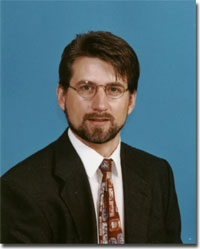 Professor Donald Craig Willcox
Professor Donald Craig Willcox
Donald Craig Willcox, Ph.D. is Professor of International Public Health and
Gerontology at Okinawa International University in Okinawa, Japan. Dr.
Willcox is a fluent speaker of Japanese and has extensive cross-national
experience in bio-cultural approaches to healthy aging, epidemiology, human
nutrition and human population genetics. He is Co-Principal Investigator of the
Okinawa Centenarian study, a 30-plus year, ongoing study of the genetic and
environmental correlates of exceptional longevity that identified the first gene
to be associated with human longevity (Takata et al. Lancet 1987) and
numerous lifestyle factors important to healthy aging. He also has a long and
successful track record of collaborative research with other studies on healthy
aging around the world such as the Honolulu Heart Program, and the Kuakini
Hawaii Lifespan Study, the study that first identified the association (since
replicated in many other populations) of the FOXO3 gene with healthy aging
and longevity in humans (Willcox et al. PNAS, 2008).
Professor Willcox has been successful in establishing cross-cultural research
collaborations through the National Institutes of Health and the National
Institute on Aging as well as projects supported by national funding agencies
in Japan, such as the Japan Society for Promotion of Sciences, among other
sources. He currently serves as a research consultant for the NIA-funded
Hawaii Lifespan Study and Hawaii Healthspan Study. Both of these studies,
and the Okinawa Centenarian Study are large, long term clinical
epidemiologic studies of healthy aging with long track records of cross
national research that possess the necessary experience and infrastructure to
carry forward innovative projects in the area of healthy and successful aging.
Professor Willcox is a member of several academic societies devoted to
research on aging such as the Gerontological Society of America (GSA) and
the International Association of Gerontology and Geriatrics (IAGG). He has
also been an invited participant at numerous international workshops that
have focused upon identifying priorities in aging research such as the recent
FUTURAGE workshop (Roadmap for Aging Research in the E.U.), and
contributes as Associate Editor to numerous journals devoted to research on
aging, such as Journals of Gerontology: Biological and Medical Sciences
(GSA), Gerontology (International Association of Gerontology and Geriatrics),
BMC Geriatrics, Rejuvenation Research, and Mechanisms of Aging and
Disease (Nature Publishing Group), among others. He recently guest edited a
special issue on centenarian studies and their contribution to our
understanding of the aging process and longevity, published in Current
Gerontology and Geriatrics Research.
Professor Willcox has several nominations for Who`s Who in Healthcare
and Medicine in the past several years and has written two best-selling books
(The Okinawa Program and The Okinawa Diet Plan) on healthy aging and
longevity that translate his research findings into practical public health
programs. The Okinawa Program was nominated for Best Wellness Book of
the Year by Books for a Better Life and received further honors from both
Amazon.com and Barnes and Nobles as one of their Top Fifty Books of the
Year for 2001. He also consults regularly for industry having recently
consulted for Chanel, VHI Healthcare (largest private health provider in
Ireland) and other well-known industry leaders in healthcare and anti-aging.
2016 - Longevity Genes: The Latest Findings
Genetic factors are clearly important for healthy aging and longevity in human beings,
however, the discovery of “longevity genes” has presented numerous challenges. Candidate
gene studies and genome-wide association studies (GWAS) for longevity have been largely
disappointing. Gene variants that affect risk factors for healthy aging and longevity, such as
hypertension or diabetes, have been discovered but effects are generally small, with modest
heritability. Only two genes have been identified in GWAS studies with large numbers of
long-lived participants to show associations with longevity, Apolipoprotein E (APOE) and
Forkhead Box O3 (FOXO3). In peripheral tissues, APOE is primarily produced by
the liver and mediates cholesterol metabolism according to the specific isoform (E2, E3 or
E4). In the central nervous system, APOE is mainly produced by astrocytes and it
transports cholesterol to neurons via APOE receptors, which are members of the low density
lipoprotein receptor gene family.APOE is involved in Alzheimer’s disease and cardiovascular
disease with the E4 isoform representing the major risk allele. FOXO3 locates in the insulin
signaling pathway and encodes evolutionarily-conserved transcription factors that regulate
multiple downstream target genes affecting a myriad of pathways involved in the aging
process. For example, FOXO3 has been shown in model organisms to be involved in
oxidative stress and ROS detoxification as well as apoptosis, DNA repair, and maintenance
of the hematopoietic stem cell pool, among other important mechanisms involved in aging
and age associated disease. Carriers of the longevity-associated protective allele (G allele) of
the FOXO3 gene are protected against human mortality, principally through a large risk
reduction for cardiovascular disease. This presentation will discuss the importance of risk (or
protective) alleles in risk factor stratification and the potential clinical applications of this
knowledge, as well as reveal potentially important therapeutic interventions that may promote
healthy aging through targeting these genes and pathways with specific nutritional strategies.